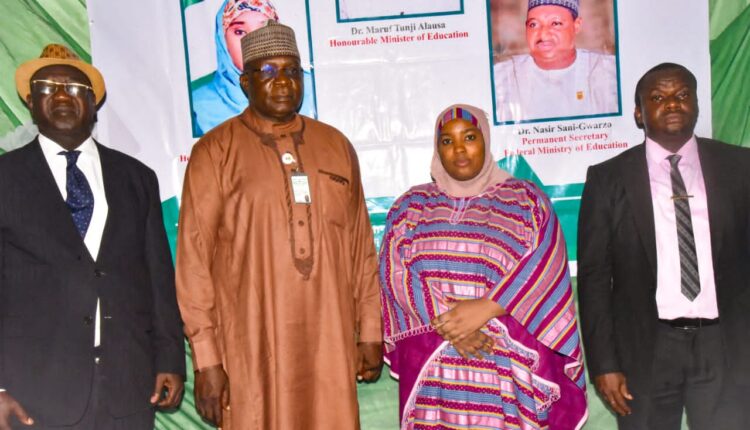Federal Government engages commissioners to address education challenges
|
Getting your Trinity Audio player ready...
|
The Federal Government has engaged commissioners of education in the 36 states and the Federal Capital Territory (FCT), along with Secretaries of Education, to address the growing challenges in Nigeria’s education sector.
The meeting, was held in Abuja, was centered around developing a comprehensive reform agenda where state commissioners key into government initiatives to improve educational standards in the country.
The Minister of Education, Dr Tunji Alausa, while speaking at the stakeholders’ consultative engagement, emphasised that without the involvement of the states, the government’s efforts would be ineffective.
Alausa said that the Ministry was engaging with the commissioners to collaborate in addressing the increasing number of out-of-school children and other challenges.
He added that addressing these problems would involve enhancing school enrollment programmes, reducing barriers to education in underserved areas, and leveraging community engagement to return every child to the classroom.
He urged the commissioners to hold robust state-level meetings, stressing the importance of open dialogue and collaboration.
He also emphasised the government’s commitment to investing in technical and vocational education to enhance the skills of Nigerian graduates.
“Our priority interventions within Nigeria’s Education Sector Renewal Initiative (NESRI) for renewed hope are STEAM, TVET, Out-of-school children, girls’ education, data, and education quality assurance.
“We will revamp TVET to equip graduates with skills that meet local and regional labor market demands,”he said.
He, therefore, called on the Commissioners of education and Secretary to prioritise STEAM and TVET at the state level by ensuring sufficient budgetary allocation and innovative partnerships with private-sector stakeholders.
He further urged them to adopt localised strategies to identify and reintegrate out-of- school children, especially in conflict-prone areas while also expanding alternative education programmes for marginalised populations.



Comments are closed, but trackbacks and pingbacks are open.